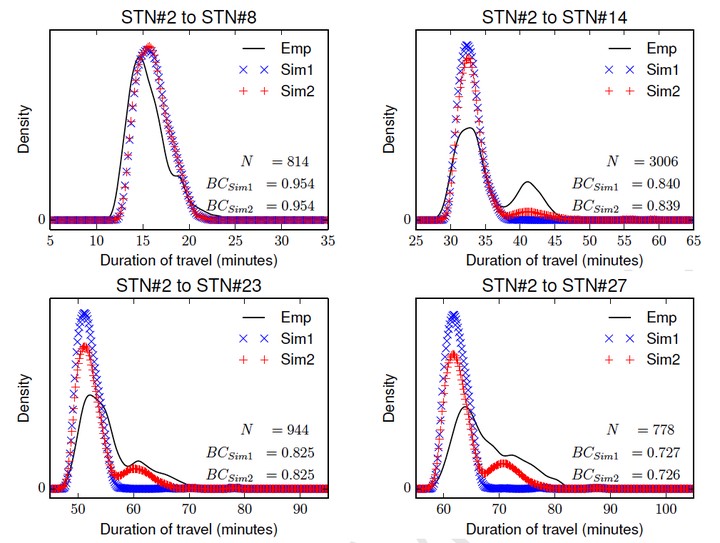A data-driven agent-based model of congestion and scaling dynamics of rapid Transit systems

Abstract
A sufficient knowledge of the demographics of a commuting public is essential in formulating and implementing more targeted transportation policies. Here, a procedure is demonstrated that classifies passengers (Adult, Child/Student, and Senior Citizen) based on their three-month travel patterns. The method proceeds by constructing distinct commuter matrices, we refer to as eigentravel matrices, that capture a commuter’s characteristic travel routine. Comparing various classification models, we show that the gradient boosting method gives the best prediction with 76% accuracy, 81% better than the minimum model accuracy (42%) computed using proportional chance criterion. The models are verified and validated; consequently, the procedure demonstrated should serve as a benchmark for problems of this type. The generally intuitive pattern of the demographic classification also points to a possible universal ‘travelprint’ of commuters, and can inspire development of unsupervised machine learning methods for automated fare collection systems that do not provide additional demographic detail.